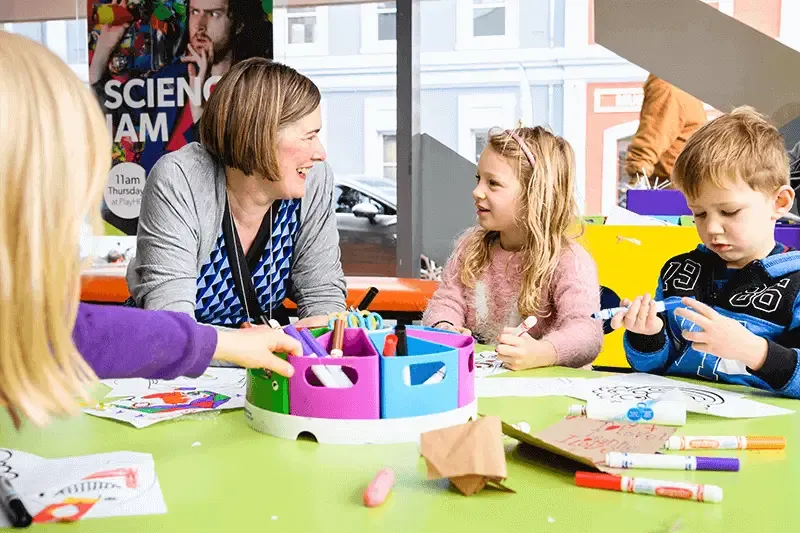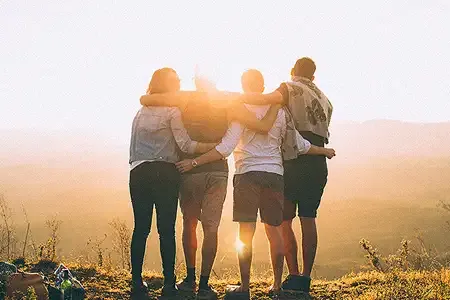Creativity at all ages
By MAS Team
Expressing yourself creatively and making time for activities that help get the creative juices flowing has been proven to permeate other aspects of life, making us happier, healthier, more rounded individuals.
From a young age, we’re encouraged to play, to be silly and imaginative, to colour and paint and create. Then at some point, it just stops for many of us. We get to a certain age where academic success takes priority, and part-time jobs suck up all our free time. Before we know it, we are thrown into the depths of dull adulthood – where the realities of life becoming all-consuming and finding time to be creative falls off the radar.
Creativity is for everyone. It doesn’t matter if you’re a doctor, a sportsperson or a student, creativity can add value in ways we don’t even realise.
Children are innately curious creative explorers in touch with their imaginations and typically have no inhibitions about expressing themselves.
These skills should be nurtured and encouraged in children to help them become healthy, successful adults, says Capital E Director Children and Young People, Dr Sarah Rusholme.
“A creative child is a resilient one. They understand that failure is part of the process and developing solutions takes time and perserverance. When creativity in children is boosted, it can help with complex problem-solving skills and critical thinking. Along with creativity, these are the three most important skills a person needs to thrive, according to the World Economic Forum’s Future of Jobs Report,” says Sarah.
Being able to think creatively can unlock all sorts of opportunities. People who can engage and understand their creative powers see possibilities and opportunities and can innovate and solve problems in novel ways.
“More and more studies are linking creativity to positive emotional health. A University of Otago study of nearly 700 young people found that a brief daily creative activity was linked to an upward spiral of wellbeing. Heling a child to hang on to their innate creativity could help them grow into stronger, happier and smarter adults that are better equipped to face an uncertain future,” Sarah says.
What about adults? How do we recapture the creative energy that once came so naturally to us? Meg Williams, Executive Director of Tāwhiri and the New Zealand Festival, encourages people to experience the arts in their communities to create room for their creativity to flourish.
“Going to theatre shows, watching live music and attending art exhibitions allows you to have moments away from daily distractions. These will enable you to access emotions that are otherwise repressed in our normal lives.
“When you watch a live performance, there are no distractions. It helps you access memories and ideas that you normally wouldn’t be in the busyness of day-to-day life,” says Meg.
Music, theatre and art are often still considered as ‘nice to have’ and viewed as ‘entertainment’ rather than essential wellbeing practices like going to the gym, she says.
“We need to get to a place where people believe that creativity is just as important as physical health. Feeding your mind, emotions and soul is priority, as well as your body.”

Tapping into your creative side is excellent for mental health and overall wellbeing. It is also becoming an increasingly crucial skill to have due to technology and automation in the workplace.
“There is increasing automation in a range of industries that is disrupting traditional workplaces and has made creativity more important that it’s ever been.
“Experiencing art is by no means the only way to build creative skills, but it’s a powerful one. That’s why Nobel Prize-winning scientists are 22 times more likely to engage with the arts than typical scientists. If you want original solutions, arts can help stimulate creativity,” she says.

Explore ways to help uplift your mental health, connect with your place of belonging and ensure your workplace is inclusive and welcoming.

What you need to know about Contract Works Insurance.

Communicating and connecting with other people isn’t always straightforward, but practicing gratitude and learning about the 5 love languages can help.